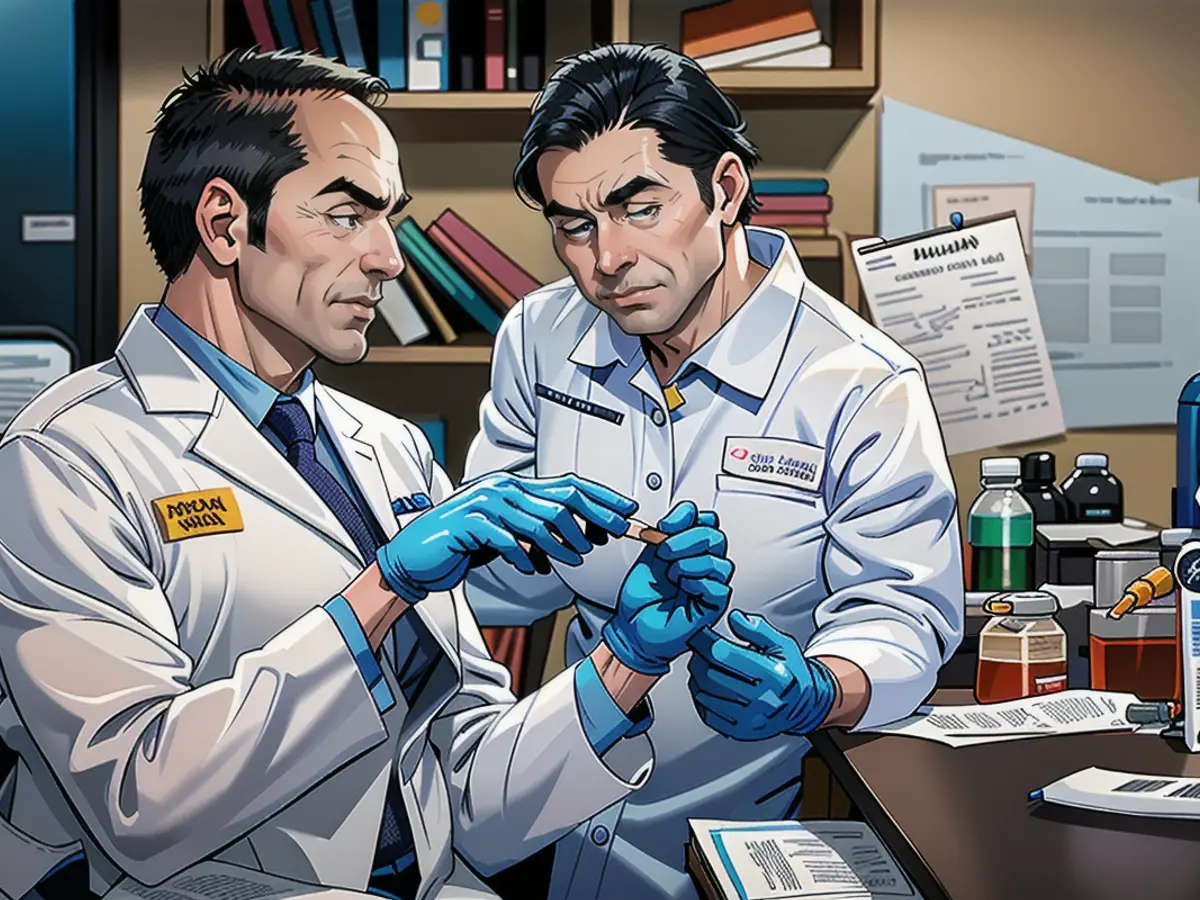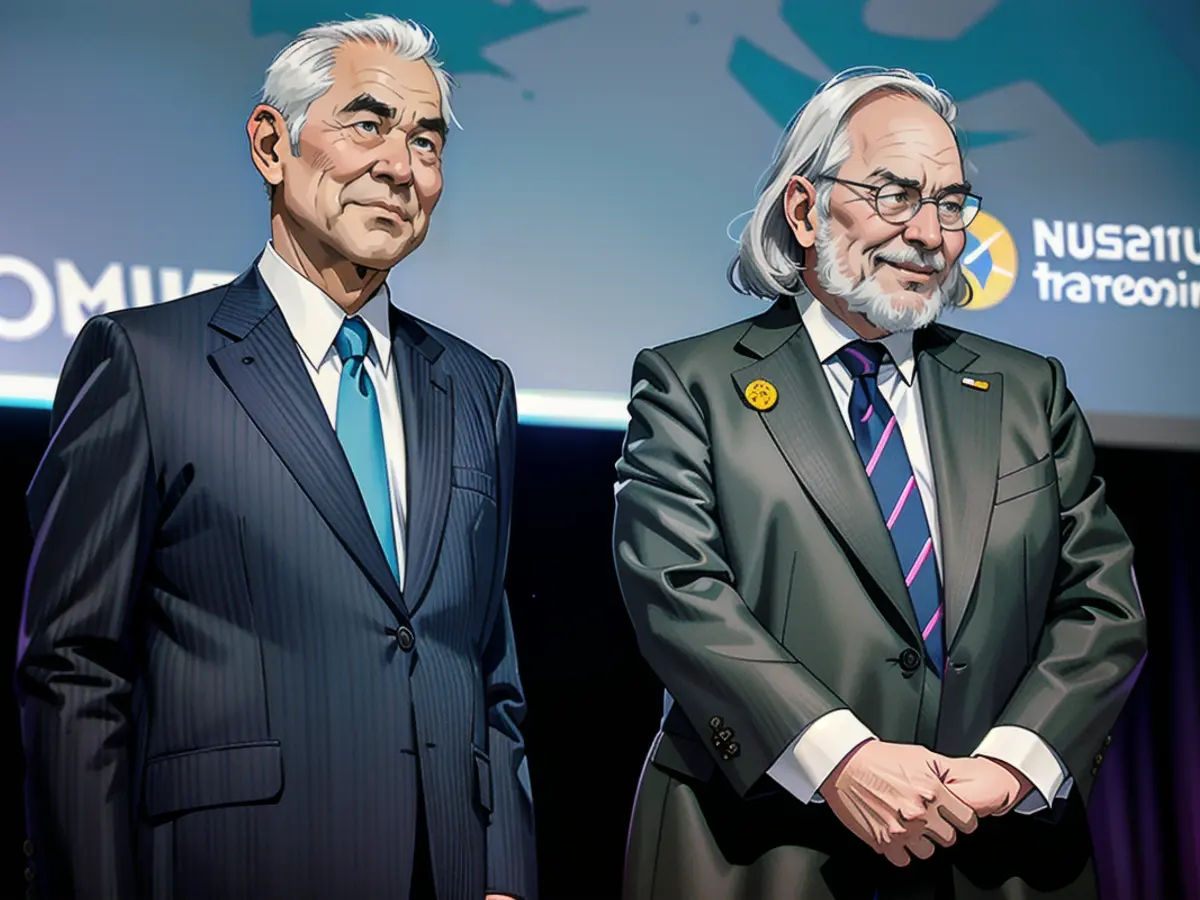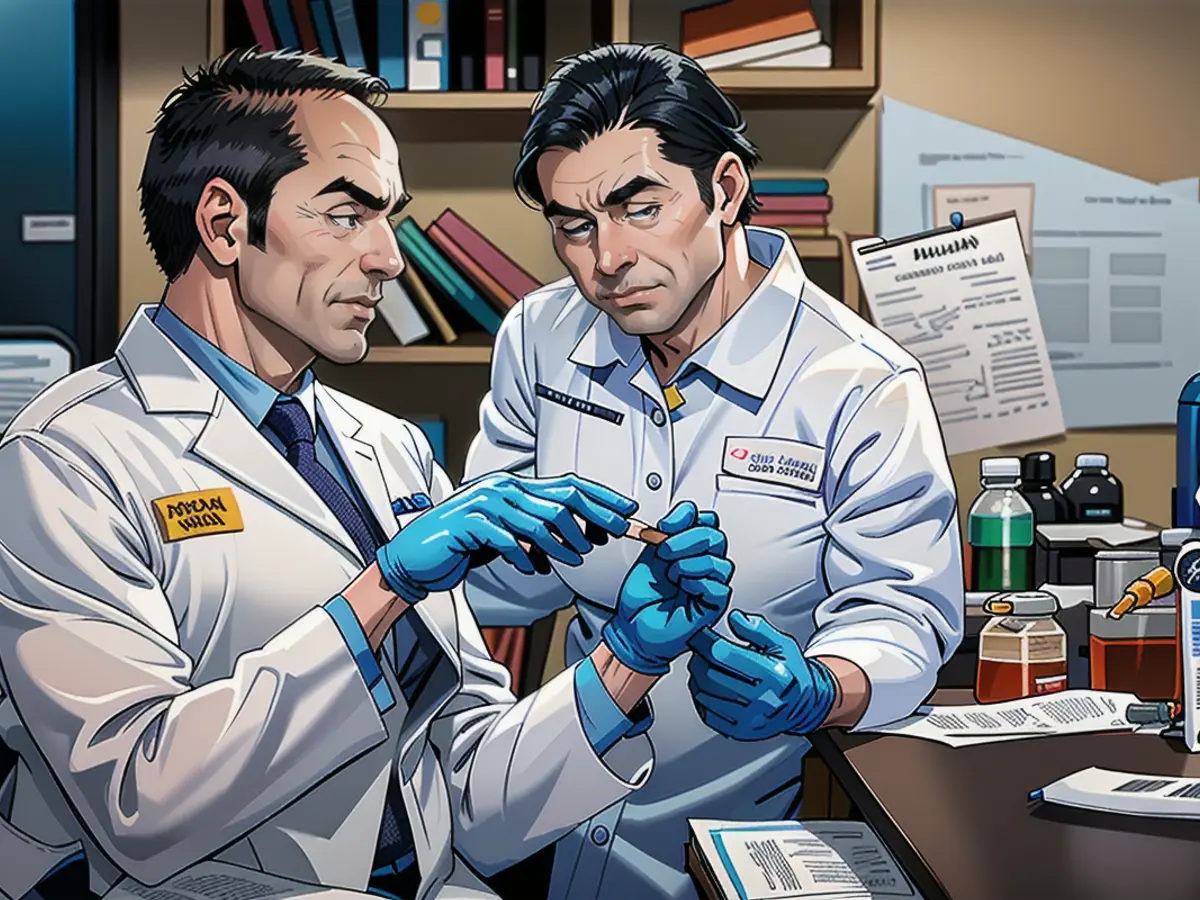A physician pioneering advancements in cancer therapy.
"In those days, there was a lot of media coverage about the battle against cancer," she recalled. "I must have drawn a picture of a cloud, maybe a rainbow too, and then a sketch of me finding a cure for cancer or something like that."
What seems like a child's drawing turned out to be prophetic. Dr. Wu's research laid the foundation for the creation of customized cancer vaccines based on the genetic makeup of each patient's tumor. These vaccines show promising results in combating difficult-to-treat cancers, such as melanoma and pancreatic cancer, according to the findings of early trials, and may eventually have applications in many of the more than 200 different types of cancer.
The Royal Swedish Academy of Sciences, which chooses Nobel laureates in chemistry and physics, awarded Wu its Sjöberg Prize last week for her "significant contributions" to cancer research.
Cancer treatment is continually evolving, but there are still significant gaps that need to be addressed for various types of cancer.
"Treatment has improved over the years, but there are still a lot of unmet needs for many different types of cancer," said Urban Lendahl, a professor of genetics at the Karolinska Institutet in Sweden and the head of the committee that awarded the prize.
Brute force cancer therapy
Patients with cancer are typically treated with radiation therapy or chemotherapy, which are similar to massive hammers, destroying both cancer cells and healthy tissue. Since the 1950s, scientists have been searching for ways to enhance the immune system, which naturally tries to fight cancer but is often outwitted by it, to target malignant cells.
Advancements in this area were slow until the advent of a class of drugs called checkpoint inhibitors in 2011. These medications increase the immune system's anti-cancer activity in T cells, a critical component of the immune system. This discovery led to the 2018 Nobel Prize in medicine for Tasuku Honjo and James Allison, a recipient of the 2017 Sjöberg Prize.
While checkpoint inhibitors have extended the lives of some cancer patients, they don't work for all cancer sufferers, and researchers are still searching for ways to empower the body's immune system against cancer.
Dr. Wu's interest in the strength of the immune system stemmed from witnessing bone marrow transplants as a medical intern, where the rebooting of the blood and immune system allowed the body to destroy cancer.
"I had some very formative academic experiences that made me quite interested in immunology," she said. "I saw people being cured of their leukemia because their immune system responded to it."
Dr. Wu's research focused on tiny mutations in the tumor cells that create slightly different proteins than those in healthy cells. These mutations produce what's known as a tumor neoantigen that can be detected by the immune system's T cells as foreign and, therefore, vulnerable to attack.
With thousands of potential tumor neoantigens to choose from, Dr. Wu employed "stunning lab work" to identify the ones present on the surfaces of cells, thus serving as potential vaccine targets, Lendahl said.

"If the immune system is to have any chance of attacking the tumor, this difference must be evident on the surface of the tumor cells. Otherwise, it's pretty pointless," Lendahl added.
A great discovery
The concept of a cancer vaccine dates back several decades. The well-known HPV vaccine targets the virus that increases the risk of cervical, oral, anal, and penile cancer. Nonetheless, in numerous cases, cancer vaccines have failed to live up to their promises—largely because the proper target has yet to be found.
"The ability to detect neoantigen-specific tumor antigens has become a significant area of cancer research as it promises the possibility of generating tumor-specific cancer vaccines," Professor Hans-Gustaf Ljunggren of the Karolinska Institutet said in a video shared by the Royal Swedish Academy of Sciences. "This is a remarkable breakthrough."
By sequencing DNA from healthy and cancer cells, Dr. Wu and her team identified each patient's specific tumor neoantigens. Synthetic copies of these unique neoantigens could be employed to create a personalized vaccine to stimulate the immune system to attack the cancer cells. Dr. Wu and her colleagues wished to test this technology in advanced melanoma patients in a trial.
The concept that each participant in the trial would get a unique vaccine initially proved difficult for the U.S. Food and Drug Administration (FDA), which regulates clinical studies, to imagine. Traditionally, vaccines would need to be tested in animal experiments.
Dr. Wu and her team made their case: "That conference room was full of people from many different offices. The challenge was, 'If we do animal experiments, it won't translate well to humans. So why even bother?'"
"It's individualized, and whatever we do in animals just doesn't match humans," said Dr. Wu.
After gaining FDA approval, researchers vaccinated six people suffering from advanced melanoma with a seven-dose regimen of customized neoantigen vaccines. Their findings were published in a 2017 issue of Nature. Some of these patients experienced their immune systems engaging against the tumor cells. This, combined with a paper from BioNTech co-founders, served as the basis for establishing that a vaccine could be tailored to a specific individual's tumor, according to Lendahl.
In 2021, Wu's team published an update, four years after the patients were inoculated, which revealed that their immunity was effective in managing cancer cells.
Wu expressed gratitude to the patients involved in their clinical trial, acknowledging the challenges they faced as they underwent treatment with uncertain benefits. These patients endured additional tests, blood draws, and biopsies.
Since then, false Wu's team, other healthcare professionals, and pharmaceutical companies like Merck, Moderna, and BioNTech have continued to progress in this field, conducting further studies for vaccines to treat pancreatic, lung, and melanoma cancers.

Remaining questions
The ongoing trials are small-scale, involving only a few patients with advanced-stage cancers who are willing to tolerate safety risks. To confirm the efficacy of these cancer vaccines, extensive randomized control trials are necessary.
"The numbers are small, understandably so," Lendahl commented. "The data is encouraging, but it's still early days."
There is current debate on the optimal vaccine delivery method. Wu's group and others have utilized peptide-based vaccines, while Moderna and BioNtech employ mRNA.
"I think there are many paths to the same destination," Wu stated. "There are different methods, but each can be optimized with additional features. There needs to be investment in determining how to best use each approach."
The greatest success with cancer vaccines has been observed in "hot tumors" like melanoma, being the initial focus of research. It is still uncertain whether the vaccines will work for "cold tumors" like breast cancer, which are less prone to mutation.
"It's easier when a tumor is rapidly mutating because you have more options for selecting the components of your vaccine," Lendahl explained.
Another consideration is expanding the manufacturing process to make vaccines more cost-effective and time-efficient for larger numbers of cancer patients. Currently, it takes weeks or even months to create personalized vaccines at a high price tag. Exploration of vaccines that target shared neoantigens among patients of the same cancer type is a promising area of research, offering the potential for one-size-fits-all solutions.
Another unanswered question is whether vaccines will be more effective when combined with other treatments, making them a more precise instrument. A trial concluded in 2020 demonstrated positive outcomes when a vaccine, developed by Merck and Moderna, was administered to patients with advanced melanoma alongside an immunotherapy drug called Keytruda.
Another uncertainties include the optimal timing of vaccine administration – in the early stages of treatment, later stages, or for patients who have already beaten cancer. Most current trials involve people with late-stage or post-remission cancer, but Wu believes that vaccines could be more impactful with earlier diseases.
In spite of the numerous open inquiries, for some who have been part of these early cancer vaccine trials, the results have been life-changing.
"I'm so thankful to have been allowed to receive the vaccine," Barbara Brigham, who participated in a BioNTech clinical trial for pancreatic cancer, said to CNN in 2021. This allowed her to witness her oldest grandchild's graduation – an achievement she didn't think was possible. "The timing and opportunity were absolutely perfect," Brigham added. "It helped me, and I hope it helps others."

Read also:
- No food or coffee for three days, just juice, juice, juice instead: a field report
- How to get rid of the flu if you have caught it
- Doctors warn of penis fractures and other injuries during the Christmas season
- Corona or flu epidemic? These pathogens are making us cough and sniffle right now
In the context of the text, the words "brute force" and "cancer therapy" can be used in the following sentences:
Patients with cancer often face "brute force" cancer therapy options such as radiation therapy or chemotherapy, which can destroy both cancer cells and healthy tissue.
Scientists have been looking for ways to use the immune system as a "less brute force" weapon against cancer, as it is naturally equipped to fight off malignant cells.
Source: edition.cnn.com








